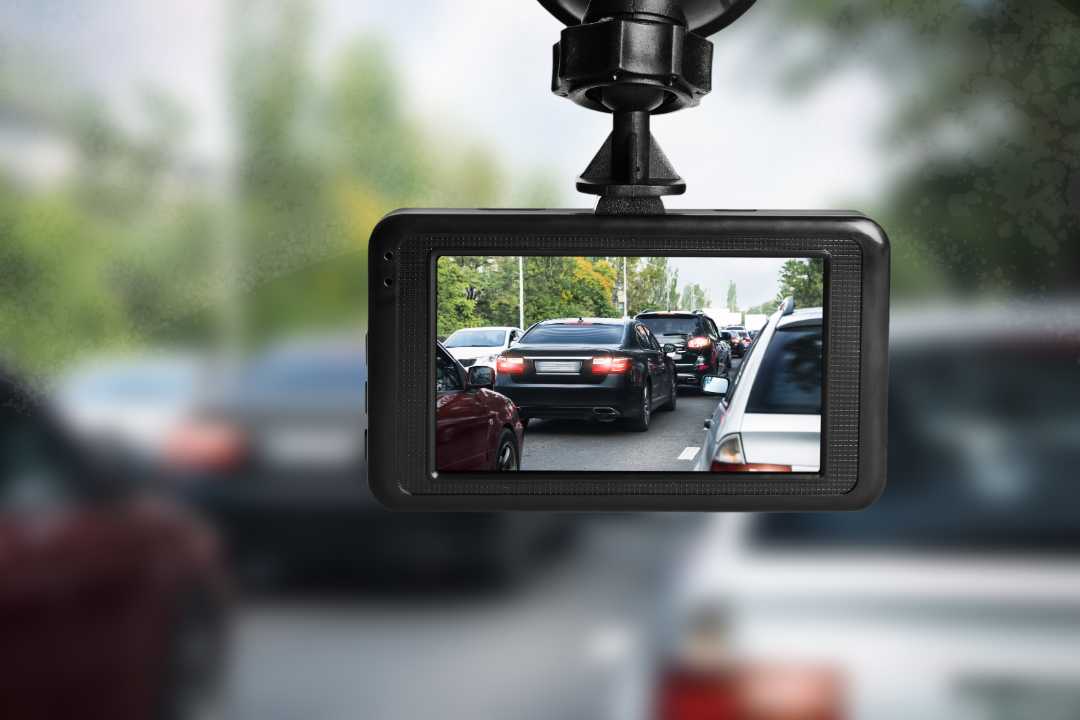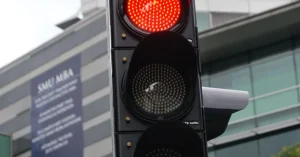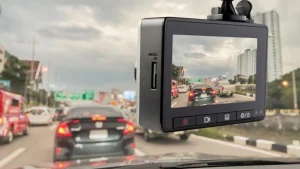Hitting the road in Rhode Island, also known as “The Ocean State,” can be a scenic adventure. But unforeseen events can happen in the blink of an eye. Having a dash camera (dashcam) has become increasingly popular for drivers nationwide, offering valuable video evidence in case of accidents or road rage incidents. However, navigating the legalities of dashcam use can be confusing. This comprehensive guide will break down everything you need to know about dashcam regulations in Rhode Island, ensuring you stay compliant and protected.
Is it Legal to Use a Dashcam in Rhode Island?
The good news for Rhode Island drivers is that dashcams are legal for use in the state. There are no laws explicitly prohibiting the recording of video footage while driving. However, there are some crucial regulations regarding mounting location and potential privacy concerns.
Mounting Regulations: Keeping Your View Clear
While dashcams are legal, their placement is subject to specific restrictions. Rhode Island General Laws § 31-23.3-2 prohibits placing any non-transparent materials on the windshield. This means you cannot mount your dashcam directly on the windshield, as it could obstruct your view of the road.
Here are some safe and legal mounting alternatives:
- Dashboard: This is the most common and recommended location. Mounting your dashcam on the dashboard ensures a clear view for both you and the camera.
- Rearview Mirror Mount: Certain dashcams come with mounts that attach to the rearview mirror stem. These mounts are typically small and unobtrusive, but ensure they don’t block your view of the road behind you.
- Suction Cup Mount: While not ideal for the windshield due to legal restrictions, suction cup mounts can be used on side windows, as long as they don’t significantly impede your view of the side mirrors.
Privacy Considerations: Passengers and Audio Recording
While recording video footage on public roads is generally legal, it’s important to consider passenger privacy. Here’s what you need to know:
- Passenger Consent: If your dashcam captures audio of your passengers, it’s essential to obtain their consent before recording. Rhode Island is a one-party consent state, meaning you only need your own consent to record video. However, obtaining passenger consent avoids potential privacy concerns and fosters a more harmonious driving environment.
- Audio Recording: While legal, some drivers might not be comfortable with audio recording. It’s a good practice to inform passengers about audio recording and offer the option to disable it if they prefer.
What Can You Record with a Dashcam?
Dashcams can capture valuable evidence in various situations. Here are some instances where dashcam footage can prove helpful:
- Accidents: In case of an accident, dashcam footage can provide crucial details about what transpired on the road, helping determine fault and navigate insurance claims.
- Hit-and-Runs: If you’re a victim of a hit-and-run, dashcam footage can capture the fleeing vehicle’s details, aiding police investigations.
- Road Rage Incidents: Dashcam footage can document aggressive driving behavior, helping hold reckless drivers accountable.
- False Accusations: In a situation where you’re wrongly accused of wrongdoing, dashcam footage can serve as your defense.
Beyond Legality: Additional Considerations for Dashcam Users
While understanding legal regulations is crucial, responsible dashcam use goes beyond just following the rules. Here are some additional points to consider:
- Dashcam Features: When choosing a dashcam, consider features like video quality, night vision capabilities, loop recording (automatically overwrites older footage), and parking mode (captures footage when the vehicle is parked).
- Storage and Management: Decide on a storage solution for your dashcam footage. SD cards are a popular option. Regularly review and manage your footage to avoid filling up storage space.
- Privacy Concerns and Sharing Footage: While recording on public roads is generally legal, be mindful of recording private property or individuals without their consent. Use discretion when sharing footage online, especially if it identifies people involved.
Conclusion: Drive Smart and Stay Protected with a Dashcam
By understanding the legal framework and best practices for dashcam use in Rhode Island, you can ensure you’re utilizing this technology responsibly and effectively. A dashcam can offer peace of mind and valuable evidence in unforeseen situations. Remember, safe driving practices are always the top priority. By combining responsible driving with a legal and well-positioned dashcam, you’re taking an extra step towards a safer and more secure driving experience on the roads of Rhode Island.
Frequently Asked Questions (FAQs) About Dashcams in Rhode Island
- What happens if my dashcam falls and obstructs my view while driving?
If your mounted dashcam falls and blocks your view of the road, pull over immediately to a safe location and reposition it. Driving with an obstructed view is a violation and could lead to a citation.
- Are there any laws regarding the tint or darkness of the dashcam itself?
No, Rhode Island currently has no specific regulations regarding the tint or darkness of the dashcam itself. However, it’s recommended to choose a dashcam with a design that minimizes obstructing your view.
- Can law enforcement officers request to see my dashcam footage?
Law enforcement officers cannot legally demand to see your dashcam footage without a warrant. However, you can choose to voluntarily provide footage if it assists with their investigation.
- What happens if I accidentally record footage in another state with different dashcam laws?
Dashcam laws vary by state. While Rhode Island allows dashcam use, other states might have stricter regulations. It’s always a good practice to familiarize yourself with the dashcam laws of any state you plan to travel through.
- Are there any legal repercussions for not having a dashcam?
Absolutely not. Having a dashcam is entirely optional in Rhode Island. However, as discussed previously, dashcam footage can prove invaluable in certain situations.
Beyond Rhode Island: A Look at National Dashcam Laws
While Rhode Island allows dashcam use with some mounting restrictions, other states have varying regulations. Here’s a brief overview:
- States with No Restrictions: These states have no specific laws regarding dashcam use. (e.g., Alaska, Montana)
- States with Mounting Restrictions: Similar to Rhode Island, these states prohibit windshield mounting but allow dashcam use on the dashboard or other legal locations. (e.g., Arizona, California)
- States with Consent Laws: In these states, you might need passenger consent for audio recording. (e.g., Connecticut, Delaware)
- States with Restrictions: A few states have stricter regulations, such as requiring specific disclosure signs about dashcam use in the vehicle. (e.g., Arkansas, Minnesota)
Staying Informed: Resources for Up-to-Date Dashcam Laws
Dashcam laws can change over time. Here are some resources to stay informed about the latest regulations:
- National Highway Traffic Safety Administration (NHTSA): https://www.nhtsa.gov/ (https://www.nhtsa.gov/)
- Electronic Frontier Foundation (EFF): https://www.eff.org/ (https://www.eff.org/)
- Dashcam Law websites: Several websites compile and update dashcam laws by state.
By familiarizing yourself with the legal framework and best practices for dashcam use, you’re ensuring you’re utilizing this technology responsibly and effectively for a safer driving experience.



